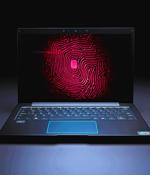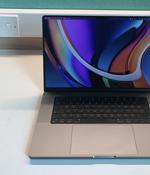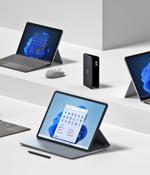Security News

That would put America on the same level as China for espionage The European Commission is giving staffers visiting the US on official business burner laptops and phones to avoid espionage...

300+ US companies, 70+ individuals hit by the fraudsters An Arizona woman who created a "laptop farm" in her home to help fake IT workers pose as US-based employees has pleaded guilty in a scheme...

The U.S. Justice Department arrested a Nashville man charged with helping North Korean IT workers obtain remote work at companies across the United States and operating a laptop farm they used...

The FBI today arrested a Tennessee man suspected of running a "Laptop farm" that got North Koreans, posing as Westerners, IT jobs at American and British companies. According to US prosecutors, Matthew Isaac Knoot, 38, of Nashville, defrauded multiple US and UK companies by applying for remote technology jobs, and then secretly outsourced those jobs to North Koreans.

Security researchers Jesse D'Aguanno and Timo Teräs write that, with varying degrees of reverse-engineering and using some external hardware, they were able to fool the Goodix fingerprint sensor in a Dell Inspiron 15, the Synaptic sensor in a Lenovo ThinkPad T14, and the ELAN sensor in one of Microsoft's own Surface Pro Type Covers. These are just three laptop models from the wide universe of PCs, but one of these three companies usually does make the fingerprint sensor in every laptop we've reviewed in the last few years.

Hardware security hackers have detailed how it's possible to bypass Windows Hello's fingerprint authentication and login as someone else - if you can steal or be left alone with a vulnerable device. The research focuses on bypassing Windows Hello's fingerprint authentication on three laptops: a Dell Inspiron 15, a Lenovo ThinkPad T14, and a Microsoft Surface Pro 8/X, which were using fingerprint sensors from Goodix, Synaptics, and ELAN, respectively.

Security researchers bypassed Windows Hello fingerprint authentication on Dell Inspiron, Lenovo ThinkPad, and Microsoft Surface Pro X laptops in attacks exploiting security flaws found in the embedded fingerprint sensors. Blackwing Intelligence security researchers discovered vulnerabilities during research sponsored by Microsoft's Offensive Research and Security Engineering to assess the security of the top three embedded fingerprint sensors used for Windows Hello fingerprint authentication.

A group of academics has devised a "Deep learning-based acoustic side-channel attack" that can be used to classify laptop keystrokes that are recorded using a nearby phone with 95% accuracy. "When trained on keystrokes recorded using the video conferencing software Zoom, an accuracy of 93% was achieved, a new best for the medium," researchers Joshua Harrison, Ehsan Toreini, and Maryam Mehrnezhad said in a new study published last week.

Researchers from Ruhr University Bochum and the CISPA Helmholtz Center for Information Security in Saarbrücken have assessed the security mechanisms of satellites currently orbiting the Earth from an IT perspective. They analyzed three current low-earth orbit satellites and found that, from a technical point of view, only some modern security concepts were implemented.

Microsoft is finally rolling out a driver update to address a known issue causing built-in cameras on ARM-based Windows devices to stop working. Before releasing the updated driver to fix the broken Surface laptop cameras, Microsoft also provided a temporary workaround that can still be used until the update rolls out to all impacted systems.